This mom donated her uterus, so a woman she didn't know could be a mother, too
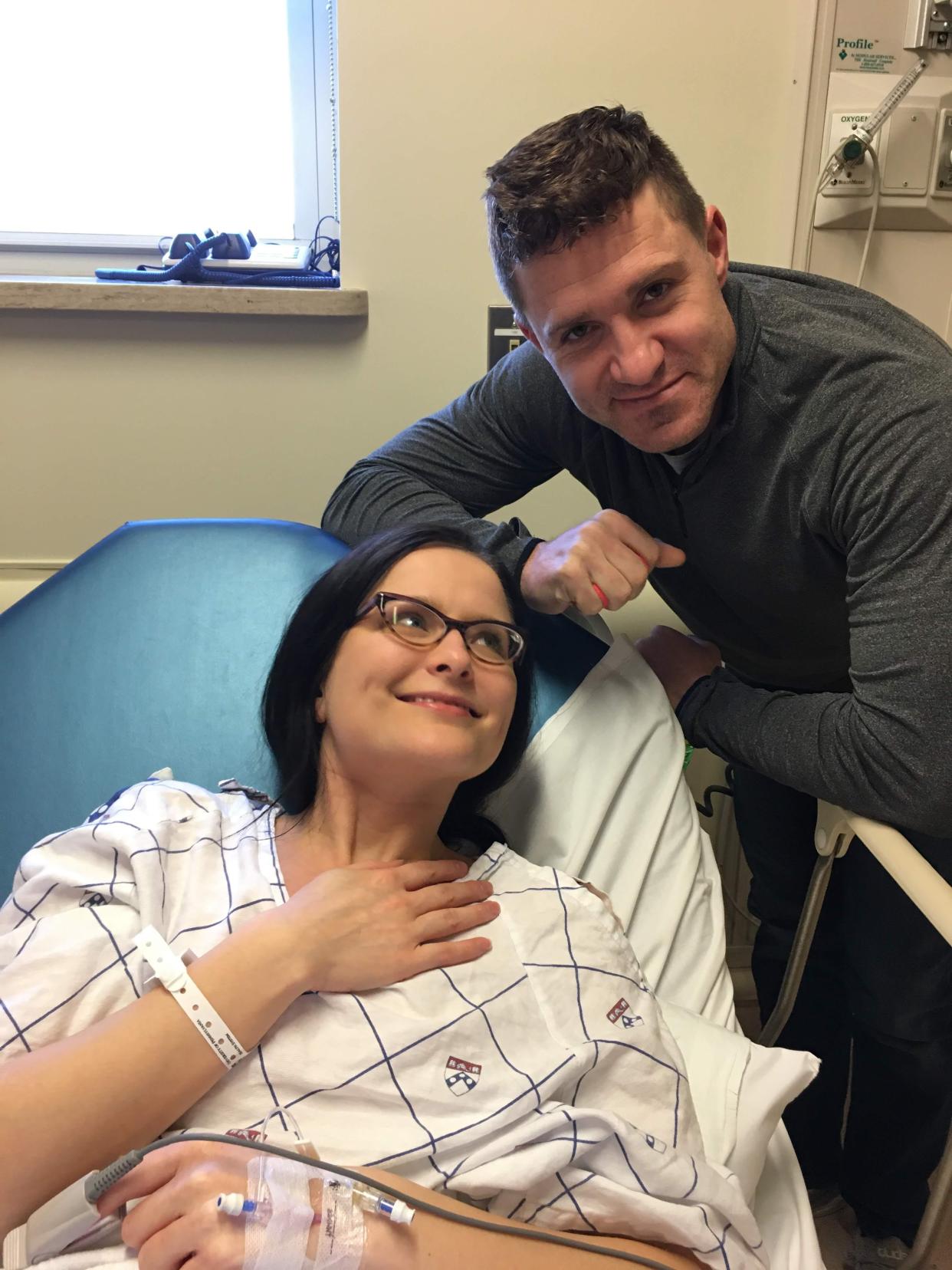
Chelsea Jovanovich always wanted to be a mom, but for most of her life, that dream felt out of reach.
At 15, Jovanovich learned she had been born without a fully functional uterus due to a rare congenital disorder known as Mayer-Rokitansky-Küster-Hauser (MRKH) Syndrome. The condition, which affects about 1 out of every 4,500 individuals, makes it impossible to get pregnant or carry a child.
Initially, she was devastated by the news. And when she reached her mid-20s, her sorrow only grew.
“The loss became more profound in my childbearing years, when my friends started getting married and having kids and going to baby showers,” Jovanovich said.
But in the summer of 2019, grief turned to hope when Jovanovich — who lives in Billings, Montana, with her husband — heard Penn Medicine at the University of Pennsylvania was accepting applicants for its Uterus Transplantation for Uterine Factor Infertility (UNTIL) trial in Philadelphia.
“I was crying as I was filling out that application. I just thought I was grasping for straws. But lo and behold they contacted me two days later,” she recalled.
Following an extensive evaluation, Jovanovich was soon enrolled and by December, she was told they had found a match.
Woman to woman, a uterus shared
Cheryl Cichonski-Urban was a mother of two in Langhorne, Pennsylvania, who was inspired to apply by a news story about a woman who had donated her uterus in Texas.
“Something, fate, really drew me to this story,” she said.
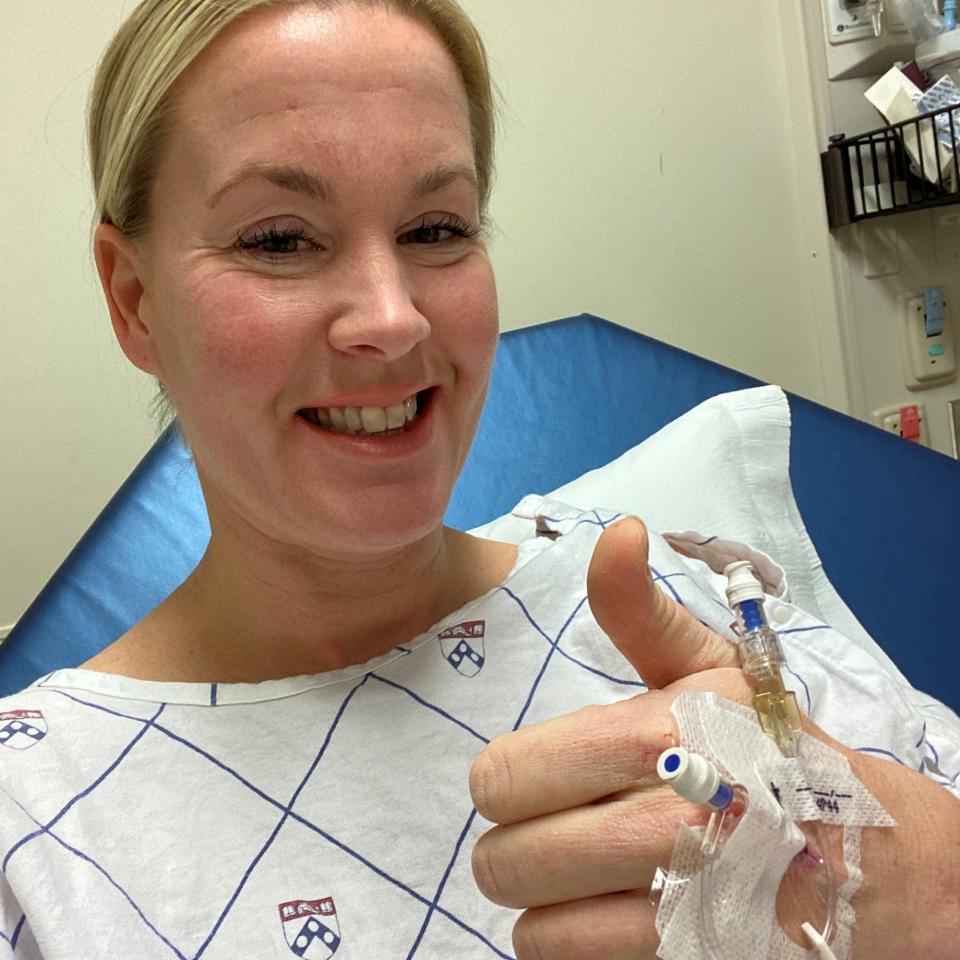
On the day of the transplant, as Cichonski-Urban awaited surgery, she thought of the woman who would soon receive her uterus.
“I could only help but wonder who my recipient was, and how she was feeling. Without knowing or meeting her, I felt connected to her,” she said.
Nearby, Jovanovich also wondered.
“I knew going into this process, whoever this angel was, she was going to be a part of my life. I wanted to know her, I wanted to meet her and I wanted to thank her,” she said.
Penn's first living donor uterus transplant
Prior to Jovanovich’s procedure, the team had performed two successful uterine transplants using deceased donors. This would be Penn Medicine’s first living donor uterus transplant, said Dr. Kathleen O’Neill, lead investigator for the trial.
“With a living donor, you have to be very mindful of two patients, not just the recipient," she said.
Overall, O’Neill said about 100 of these transplants have been done around the world, with the first performed in Sweden in 2014. Penn Medicine's trial began in late 2017.
The surgery to remove Cichonski-Urban’s uterus, called a modified radical hysterectomy, took 14 hours and involved a team of over 100.
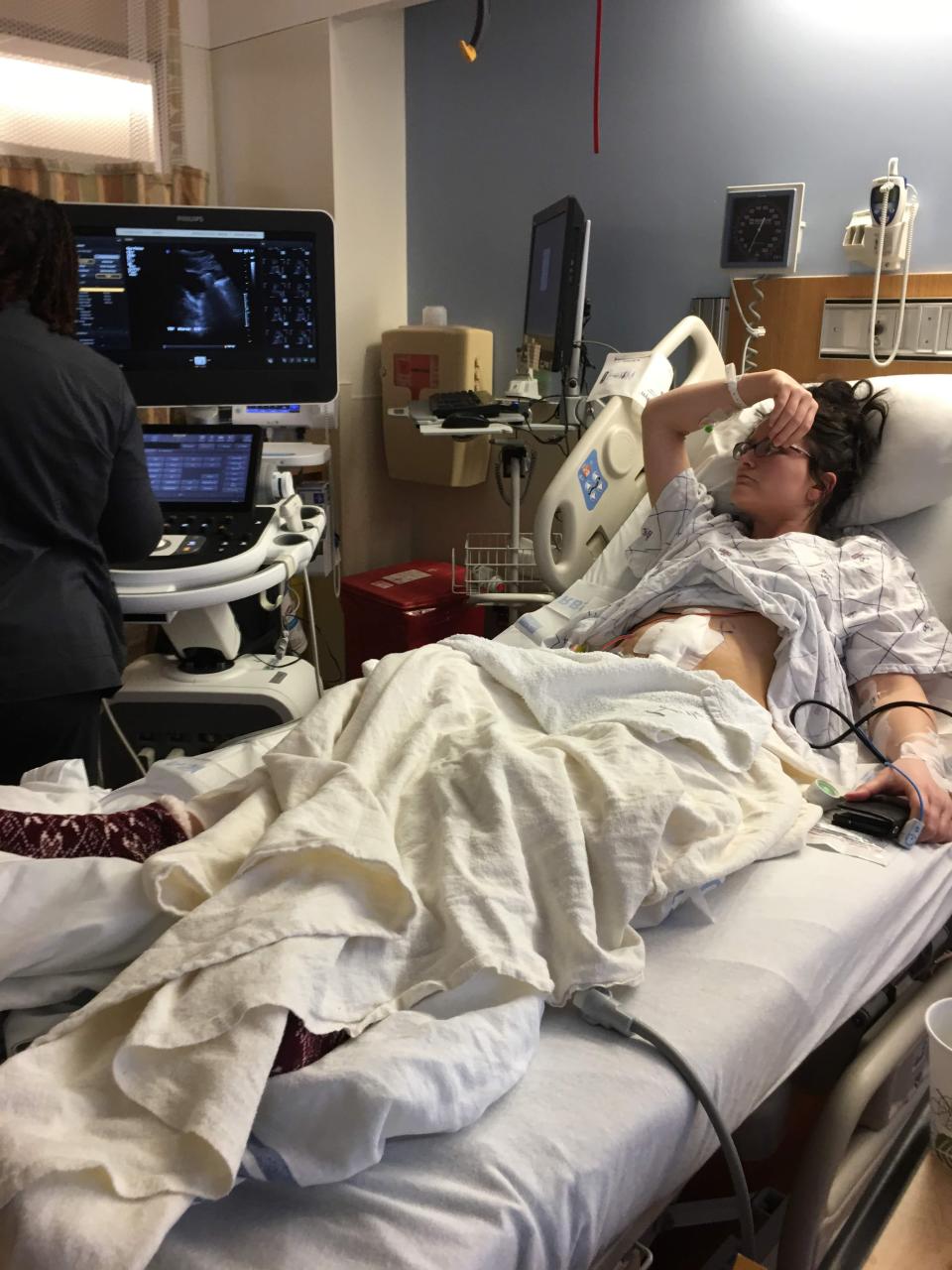
The uterus was transferred to Jovanovich, a procedure which lasted about 10 hours.
They both woke up to learn the transplant had been successful.
“I was happy I got the uterus and the transplant worked, but I knew we had a long road to go. I never let my heart or mind say we were going to have a baby. I hoped it would work, but I never said it out loud,” she recalled.
'Words can't even describe it'
The next step of her journey would involve implanting one of her embryos. After an unsuccessful first attempt, Jovanovich became pregnant in October 2020.
Throughout the pregnancy, Jovanovich and Cichonski-Urban contacted one another and stayed in touch before finally meeting at Jovanovich's maternity photo shoot.
“I wanted to meet the angel who gave me this opportunity to have a baby,” Jovanovich said. “I felt like I knew her forever. It wasn’t like she was a stranger. I call her my soul sister.”
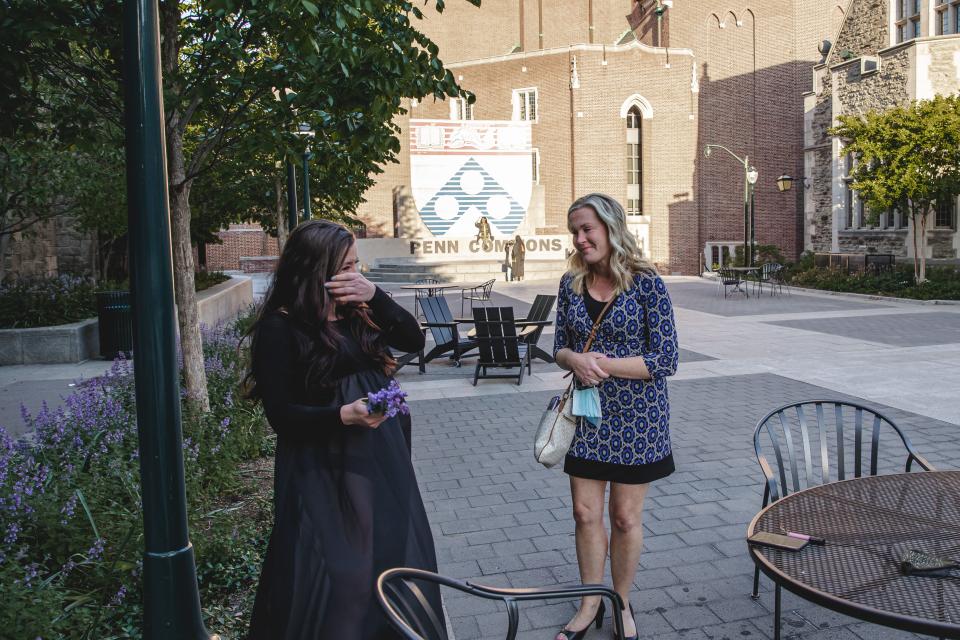
Two days later, Jovanovich gave birth to her son, Telden, in May 2021.
“I felt like I was in a dream honestly. Words can’t even describe it. I was a mom. There was this instant connection. I never knew you could love someone like that,” said Jovanovich.
Now, after giving birth to her second son, Stetson, last October, she only hopes her experience helps pave the way for others struggling to remain hopeful in the face of infertility.
“Never give up hope,” she said. “At 15 I was told I’d never be able to carry my children. But I never gave up hope that I might be able to have children one day,” she said. “I just took a chance and here we are. I’m very grateful for Cheryl, our family, our friends, God and Penn Medicine.”
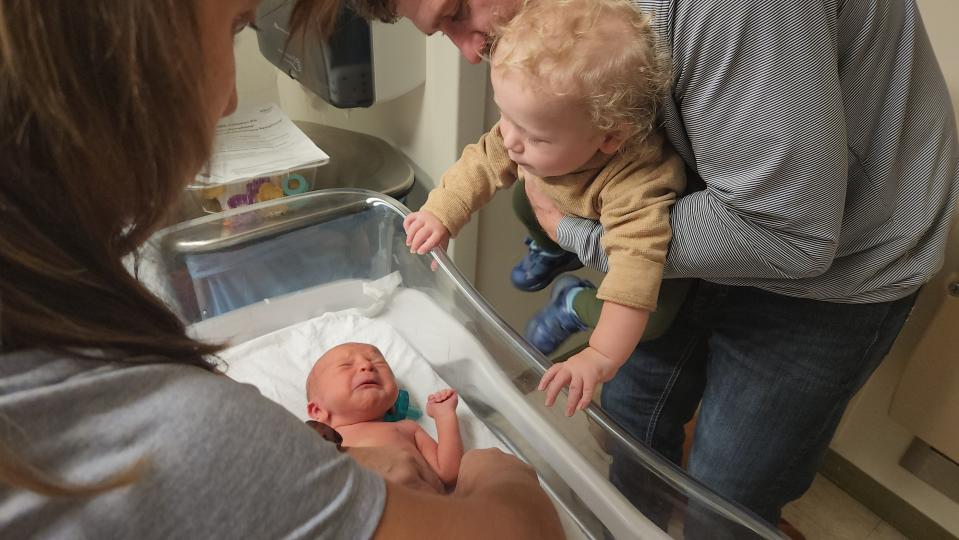
Penn Medicine restarting transplant program after pandemic
Jovanovich’s transplant was the last one performed by Penn Medicine’s team, with the pandemic bringing research elective procedures to a halt. But they are gearing up to start again this year.
O’Neill said she’s hopeful the trial will need about another four years to ensure the effectiveness and safety of the program before it becomes a standard of care.
“Being involved in this has really just excited me in a whole new way about the possibilities in reproductive medicine,” she said.
“I myself have experienced infertility and I try to talk about that because I want my patients to know that they’re not alone,” shared O’Neill said, adding that one out of six couples struggle with infertility.
“People who battle with infertility carry around these invisible scars. They’re doing all this work and it’s not visible so it’s easy to turn a blind eye. Raising awareness will help people see it’s common and there are ways to battle this condition.”
This article originally appeared on USA TODAY NETWORK: Uterus transplant: Organ donation cures infertility, bonds two women


